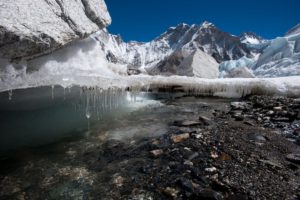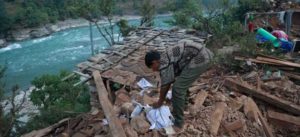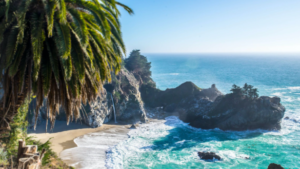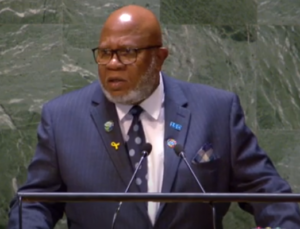Major news events of 2011
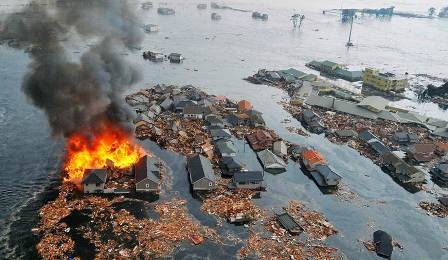
JANUARY
Jan. 2- A magnitude 7.1 earthquake shakes southern Chile, sending tens of thousands of people fearing a tsunami to higher ground.
Jan. 6 -U.S. Defense Secretary Robert Gates announces he will cut $78 billion from the Defense Department budget over the next five years, an effort to trim fat in light of the nation’s ballooning deficit.
Jan. 8 – U.S. Rep. Gabrielle Giffords is among 12 injured during Tucson, Ariz., shooting that kills six; prosecution suspended to allow suspect to undergo treatment for schizophrenia.
Jan. 14- In an unprecedented popular uprising, Tunisian protesters enraged over soaring unemployment and corruption drive President Zine El Abdine Ben Ali from power after 23 years of iron-fisted rule.
Jan. 18
The first director of the Peace Corps, R. Sargent Shriver, widower of Special Olympics founder Eunice Kennedy Shriver, dies at 95.
Jan. 19
Chinese President Hu Jintao uses his White House visit to acknowledge “a lot still needs to be done” to improve human rights in his nation accused of repressing its people.
Jan. 22
The collapse of another attempt at international outreach to Iran leaves world powers with few options except to hope that sanctions will persuade Tehran to reconsider its refusal to stop activities that could be harnessed to make nuclear weapons.
Jan. 23
Fitness guru Jack LaLanne dies at 96.
Jan. 25
During his State of the Union address, President Barack Obama outlines proposals for “winning the future.”
Jan. 25
In Egypt, thousands of anti-government protesters clash with police during a Tunisia-inspired demonstration to demand the end of President Hosni Mubarak’s rule.
Jan. 27
Tens of thousands of Yemenis demand that their president step down. Taking inspiration from Tunisians’ revolt, they vow to continue until their U.S.-backed government falls.
Jan. 27
U.S. Homeland Security Secretary Janet Napolitano announces color-coded terror alerts will be phased out by late April.
Jan. 28
Chaos engulfs Egypt as protesters seize the streets of Cairo, battling police, burning down the ruling party’s headquarters and defying a military curfew.
Jan. 29
Obama issues a plea for restraint in Egypt after meeting with national security aides to assess the Cairo government’s response to protests.
Jan. 31
Egypt’s military promises not to fire on peaceful protests and recognizes “the legitimacy of the people’s demands,” a sign army support for Mubarak may be unraveling.
FEBRUARY
Feb. 1
Egypt’s Mubarak says he will not run for a new term of office in September but rejects demands that he step down immediately; a quarter-million protesters call on him to go.
Feb. 3
In Yemen, demonstrators march in cities and towns against its autocratic president.
Feb. 6
Egypt’s vice president meets with the outlawed Muslim Brotherhood and other opposition groups and offers sweeping concessions, including granting press freedom and rolling back police powers in the government’s latest attempt to end two weeks of upheaval.
Feb. 6
Green Bay Packers win Super Bowl, defeating the Pittsburgh Steelers 31-25.
Feb. 7
AOL Inc. announces $315 million purchase of news website The Huffington Post.
Feb. 7
Southern Sudan is slated to become the world’s newest country. Final referendum results show 98.8 percent of ballots cast were for secession from Sudan’s north.
Feb. 8
A Google executive who helped ignite Egypt’s uprising energizes protesters after being released from detention. “We won’t give up,” he promises in Cairo’s Tahrir Square.
Feb. 11
Egypt explodes with joy after pro-democracy protesters bring down Mubarak with a momentous march on his palaces and state TV. Resigning, Mubarak hands over power to the military.
Feb. 12
Thousands of Algerians defy government warnings and dodge barricades in their capital, demanding democratic reforms. Demonstrations continue in Yemen.
Feb. 13
Egypt’s military leaders dissolve parliament, suspend the constitution and promise elections in moves cautiously welcomed by protesters.
Feb. 14
Protesters take to the streets in Iran, Bahrain and Yemen.
Feb. 15:
Protesters swarm Wisconsin’s capitol after Gov. Scott Walker proposes cutbacks in benefits and bargaining rights for public employees.
Feb. 15
Italian Prime Minister Silvio Berlusconi faces trial on charges he paid a 17-year-old Moroccan girl for sex and then used his influence to cover it up.
Feb. 16
Bookstore chain Borders declares bankruptcy; its last stores will close in September.
Feb. 16
Huge crowds call for a political overhaul in Bahrain, and leaders appear to shift tactics after attempts to crush the uprising stoke rage. In Yemen and Libya, security forces lash back at rallies.
Feb. 20
In Libya, Moammar Gadhafi’s military unleashes heavy gunfire as thousands march in a rebelious eastern city, shooting mourners trying to bury victims in a cycle of violence that has killed more than 200.
Feb. 22
A defiant Gadhafi vows to fight to his “last drop of blood” and roars at supporters to strike back against protesters.
Feb. 23
Following an earthquake in New Zealand, troops, police and emergency workers search for signs of life in the rubble of Christchurch. At least 75 are dead and 300 missing.
Feb. 26
Obama says Gadhafi has lost his legitimacy to rule and urges the Libyan leader to leave power immediately.
Feb. 27
“The King’s Speech” wins four Academy Awards, including best picture.
Feb. 28
Actress and World War II pin-up bombshell Jane Russell dies at 89.
MARCH
March 4
Arrests, killings and disappearances terrorize Tripoli, Libya, in a crackdown by Gadhafi; rebel fighters have wrested the eastern half of Libya from his control.
March 7
Obama approves the resumption of military trials at the U.S. prison at Guantanamo Bay, Cuba, ending a two-year ban.
March 9
Shuttle Discovery ends its career as the most flown U.S. spaceship, returning from orbit for the last time.
March 11
Magnitude-9.0 earthquake and resulting tsunami strike Japan’s northeastern coast, a combined disaster that will kill nearly 20,000 people and cause grave damage to the Fukushima Dai-ichi nuclear power station, world’s worst nuclear accident since Chernobyl.
March 12
Arab League asks the U.N. Security Council to impose a no-fly zone to protect Libyan rebels asGadhafi’s troops advance on the poorly equipped and loosely organized forces.
March 14
Radiation leaks from Japan’s Fukushima nuclear plant after a third reactor is rocked by an explosion and a fourth catches fire. The government warns anyone nearby to stay indoors to avoid exposure.
March 18
Former U.S. Secretary of State Warren M. Christopher dies at 85.
March 18
At a massive demonstration against Yemen’s government, snipers fire on protesters from rooftops and police block an escape route. At least 46 people die, including children.
March 19
U.S. fires cruise missiles from the sea while French jets target Gadhafi’s forces, launching a broad international effort in support of Libyan uprising that seemed near defeat.
March 20
Even as Japanese officials report progress toward gaining control of the stricken nuclear complex, officials discover more radiation-tainted vegetables and tap water, adding to public fears about contamination.
March 21
Syrians chanting “No more fear!” hold a defiant march after a deadly government crackdown failed to quash three days of mass protests in the southern city of Deraa.
March 23
Oscar-winning actress and AIDS research activist Elizabeth Taylor dies at 79.
March 25
A possible breach at Japan’s Fukushima complex escalates the crisis anew, with indications that nuclear contamination may be worse than first thought.
March 26
More than 250,000 people take to London’s streets to protest the toughest spending cuts since World War II; riot police clash with demonstrators and more than 200 people are arrested.
March 26
Former Democratic vice presidential candidate Geraldine Ferraro, first female major party nominee for the office, dies at 75.
March 28
Obama insists the U.S. was driven to intervene in Libya by the moral imperative to prevent a massacre of civilians, but as uprisings flare elsewhere, he calls the Libyan action “unique.”
APRIL
April 1:
In politically gridlocked Washington, an 11th hour agreement on the federal budget, including tens of billions of dollars in spending cuts, averts a government shutdown.
April 2
Highly radioactive water leaks into the sea from a crack at Japan’s stricken nuclear power plant; earthquake-tsunami survivors complain government is not paying enough heed to victims.
April 4
The Obama administration gives up on trying Khalid Sheik Mohammed and four alleged 9/11 co-conspirators in civilian courts in New York and will prosecute them before military commissions.
April 4
The Connecticut Huskies beat the Butler Bulldogs for the NCAA men’s basketball title.
April 6
Portugal becomes the third debt-stressed European country to need a bailout, following Ireland and Greece; prime minister announces request.
April 9
Filmmaker Sidney Lumet dies at 86.
April 13
Mubarak, the ousted Egyptian president, and his two sons are detained for investigation of corruption, abuse of power and killing of protesters.
April 15
NASA releases a trove of data from its skymapping mission, allowing anyone with Internet access to peruse millions of galaxies, stars, asteroids.
April 21
Japan seals off a wide area around the radiation-spewing Fukushima power plant to prevent tens of thousands of residents from sneaking back to homes they quickly evacuated.
April 22
Syrian security forces fire at protesters, killing at least 75 people around the country in the bloodiest day of a month-long uprising.
April 23
Yemen’s president agrees to step down and hand power to his deputy in exchange for immunity from prosecution, an about-face for the autocrat who has ruled for 32 years.
April 27
White House releases Obama’s Hawaiian “long form” birth certificate amid claims of so-called “birthers” that he was not a “natural-born citizen,” as the Constitution requires.
April 27
Powerful tornadoes rake the South and Midwest, killing more than 300; Tuscaloosa and other Alabama cities are especially hard-hit.
April 29
Britain’s Prince William and Kate Middleton marry at London’s Westminster Abbey amid pomp, circumstance and elaborate hats.
MAY
May 2
Osama bin Laden, the face of global terrorism and architect of the Sept. 11, 2001, attacks, is killed in a firefight with elite American forces at his Pakistan compound, then is quickly buried at sea in a stunning finale to a furtive decade on the run.
May 5
Pakistan breaks its silence over the U.S. commando raid that killed bin Laden, acknowledging its own “shortcomings” in finding him but threatening to review cooperation with Washington if there is another similar violation of Pakistan’s sovereignty.
May 5
Writer-director Arthur Laurents, who wrote “West Side Story,” dies at 93.
May 8
Relations between Egypt’s Muslims and Christians degenerate; riots leave 12 people dead and a church burned, adding to disorder in the post-revolution transition to democracy.
May 14
At New York’s JFK airport, Dominique Strauss-Kahn, head of the International Monetary Fund and potential candidate for president of France, is pulled from a plane and charged with sexually assaulting a Manhattan hotel maid. He resigns. Charges are later dropped.
May 17
Queen Elizabeth II becomes first British monarch to visit the Republic of Ireland.
May 19
Katie Couric, first solo anchorwoman of a network evening newscast, leaves “CBS Evening News” after five years.
May 21
Widely reported end-times prophecy by 89-year-old Christian broadcast group operator Harold Camping fails to be fulfilled.
May 22
Joplin, Mo., tornado causes more than 160 deaths; the monstrous storm, with winds up to 250 mph, damages or destroys about 8,000 homes and businesses.
May 24
Egyptian authorities order Mubarak tried on charges of corruption and conspiracy in the deadly shooting of protesters who drove him from power. Meanwhile, deaths in Syrian uprising pass 1,000.
May 25
After 25-year run, “The Oprah Winfrey Show” airs final broadcast.
May 26
In Wisconsin, a judge blocks a law scaling back bargaining rights of public employees, a subject of bitter protests.
May 26
Gen. Ratko Mladic, the Bosnian Serb general suspected of leading the bloody massacre of 8,000 Muslims in Europe’s worst massacre since World War II, is arrested after a 16-year manhunt.
May 27
Rich countries and international lenders aim to provide $40 billion in funding for Arab nations trying to establish democracy, starting with Egypt and Tunisia where uprisings overthrew longtime autocrats but scared away investors and tourists.
JUNE
June 2:
Former Massachusetts Gov. Mitt Romney announces bid for the Republican presidential nomination.
June 2
Scientists blame Europe’s worst recorded food-poisoning outbreak on “super toxic” E. coli bacteria that may be new. At least 18 are dead as illness spreads to 10 European countries.
June 3
Doctor-assisted suicide advocate Jack Kevorkian dies at 83.
June 3
Yemeni President Ali Abdullah Saleh is wounded when rebel rockets barrage his palace; he goes to Saudi Arabia for treatment.
June 7
Libya’s Gadhafi stands defiant in the face of the most punishing NATO air strikes yet — at least 40 daylight attacks that include hits to his central Tripoli compound.
June 10
Outgoing U.S. Defense Secretary Robert Gates warns that the future of the NATO military alliance is at risk because of European penny-pinching and a distaste for front-line combat.
June 12
Dallas Mavericks win first NBA title with 105-95 victory over the Miami Heat.
June 14
Obama makes four-hour visit to Puerto Rico, the first president since John F. Kennedy to make an official visit to the U.S. territory.
June 16
U.S. Rep. Anthony Weiner announces resignation 10 days after admitting he’d sent lewd self-portraits to women online.
June 18
Afghan President Hamid Karzai acknowledges his government and the U.S. have held talks with Taliban emissaries in a bid to end the nation’s nearly 10-year war.
June 21
Amid street protests, the Greek prime minister survives a confidence vote, keeping alive a government dedicated to austerity measures; aim is to avert a debt default that could lead to a financial maelstrom around the world.
June 22
James “Whitey” Bulger, the longtime fugitive Boston crime boss and fixture on the FBI’s 10 Most Wanted list, is arrested in Santa Monica, Calif.
June 22
Obama announces he is bringing home 33,000 troops from Afghanistan by next summer, withdrawing the “surge” of forces he had sent to rescue a flailing effort.
June 23
“Columbo” actor Peter Falk dies at 83.
June 24
New York becomes the largest state to legalize same-sex marriage.
June 27
International judges order the arrest of Libya’s Gadhafi for murdering civilians.
June 29
Greece fends off a bankruptcy that would have threatened the future of the euro when lawmakers back austerity measures in the face of riots that leave more than 100 injured.
JULY
July 1
Six weeks after ex-California Gov. Arnold Schwarzenegger revealed he fathered a child with a member of his household staff, Maria Shriver files divorce papers seeking to end their 25-year marriage.
July 1
In Minnesota, state government shuts down after legislators cannot agree on a budget. The shutdown lasts nearly three weeks.
July 5
Orlando, Fla., jury finds Casey Anthony, 25, not guilty of murder, manslaughter and child abuse in the 2008 disappearance and death of her 2-year-old daughter, Caylee.
July 7
Rupert Murdoch’s media empire unexpectedly jettisons News of the World, Britain’s best-selling Sunday newspaper, after a public backlash over claims it used phone hacking and other illegal tactics to expose the rich and famous, royals and ordinary citizens.
July 7
“Harry Potter and the Deathly Hallows: Part 2,” the final movie based on the wizard fantasy books, debuts in London on way to becoming year’s top-grossing movie.
July 8
Former first lady Betty Ford dies at 93.
July 10
German health officials link contaminated vegetable sprouts from a farm near Hamburg to the world’s deadliest E. coli bacteria outbreak, which eventually kills more than 50.
July 17
After a tied 2-2 Women’s World Cup soccer match, Japan outscores the U.S. 4-1 in a penalty shootout to win the championship.
July 17
A voicemail hacking and police bribery scandal escalates with the arrest of Murdoch’s former British newspaper chief and the resignation of London’s police commissioner. Prime Minister David Cameron calls a special session of Parliament to address the scandal; Murdoch will testify that he’s humbled but accepts no responsibility.
July 21
The 30-year-old space shuttle program ends as Atlantis lands at Cape Canaveral, Fla., after the 135th shuttle flight.
July 21
Eurozone leaders agree to a sweeping deal that will grant Greece a massive new bailout and radically reshape the currency union’s rescue fund.
July 22
Gunman in Norway massacres 69 people at an island youth retreat after detonating a bomb in nearby Oslo that kills eight others, the nation’s worst violence since World War II.
July 23
Singer Amy Winehouse, 27, is found dead from accidental alcohol poisoning following drinking binge after weeks of abstinence.
July 30
NATO jets bomb three Libyan state TV satellite transmitters in Tripoli, targeting a propaganda tool in Gadhafi’s fight against rebels.
July 31
Syrian security forces backed by tanks launch an assault on defiant cities and towns, killing at least 70 as the regime races to crush dissent ahead of Ramadan.
AUGUST
Aug. 1
A last-minute deal in the U.S. Congress ends a stalemate over raising the federal debt ceiling that had threatened to lead to government default. Deal included provision for a “supercommittee” to agree on deep spending cuts by a November deadline. Rep. Gabrielle Giffords returns for first time since her January shooting, to vote.
Aug. 3
An ashen-faced Mubarak, denying all charges from a bed in a courtroom defendant’s cage, went on trial for alleged corruption and complicity in the deaths of protesters who helped drive him from power.
Aug. 5
Citing a “gulf between the political parties,” credit rating agency Standard & Poor’s downgrades U.S. debt for the first time since assigning the nation’s AAA rating in 1917.
Aug. 5
Federal jury convicts three New Orleans police officers, a former officer and a retired sergeant of civil rights violations in the 2005 shooting deaths of a teenager and a mentally disabled man crossing a bridge following Hurricane Katrina.
Aug. 6
Afghan insurgents down a U.S. military helicopter, killing 30 Americans and eight Afghan commandos, the deadliest single loss for U.S. forces in the decade-old war.
Aug. 7
The European Central Bank says it will “actively implement” a bond-purchase program that could boost Spanish and Italian bonds and drive down interest yields that threaten those countries with financial disaster.
Aug. 8
Violence flares across London and beyond as shops are looted and authorities struggle to contain a third night of unrest in Britain’s capital, which will host next summer’s Olympic Games. It’s the worst rioting in London in decades.
Aug. 13
In the Republican presidential race, Rep. Michelle Bachmann wins the Iowa straw poll; Texas Gov.Rick Perry officially declares his candidacy.
Aug. 13
Wind gust topples Indiana State Fair stage before concert, killing seven.
Aug. 21
Euphoric Libyan rebels race into Tripoli and take control of the center with little resistance asGadhafi’s defenses collapse and his four-decade regime appears crumbling.
Aug. 23
A magnitude 5.8 earthquake in Virginia, the strongest on the East Coast since 1944, causes cracks in the Washington Monument and damages the National Cathedral.
Aug. 23
Dominique Strauss-Kahn is freed in New York after prosecutors question the credibility of the hotel maid who accused the ex-IMF leader of attempting to assault her in May.
Aug. 27
Hurricane Irene, after striking Puerto Rico and the Bahamas, pushes up the U.S east coast, prompting evacuations in New York City and leaving major flood damage in Vermont.
Aug. 30
Libyan rebels say they are closing in on Gadhafi and issue an ultimatum to loyalists in his hometown of Sirte, his main remaining bastion: Surrender or face an attack.
SEPTEMBER
Sept. 1
Leaders and envoys from 60 countries and the U.N. meet in Paris for talks with Libya’s rebel-led National Transitional Council to map the country’s future. They vow to free billions of dollars in frozen assets and to help Libya rebuild.
Sept. 4
Actor Jerry Lewis is absent from Muscular Dystrophy Association’s 46th annual Labor Day weekend telethon that he hosted the previous 45 years.
Sept. 7
Latest in a series of Republican presidential debates brings together Mitt Romney, Michelle Bachmann, Rick Perry, Herman Cain, Newt Gingrich, Jon Huntsman, Ron Paul, and Rick Santorum.
Sept. 8
Russian President Dmitry Medvedev calls for changes in the air transport industry as the country mourns a crash that killed 43 people, among them most of a top hockey team.
Sept. 10
Oscar- and Emmy-winning actor Cliff Robertson dies at 88.
Sept. 11
As the U.S. and the world mark the 10th anniversary of the 9/11 terrorist attacks, a memorial plaza at ground zero opens.
Sept. 14
A Colorado company recalls cantaloupes potentially contaminated with listeria, the bacteria eventually tied to deaths of at least 29 people and sickening of at least 110 in 28 states.
Sept. 16
Palestinian President Mahmoud Abbas says he will ask the U.N. Security Council next week to endorse his people’s decades-long quest for statehood but emphasizes that he does not seek to isolate or delegitimize Israel.
Sept. 16
World War II-era fighter plane plunges into spectators during air races in Reno, Nev., killing 74-year-old Florida stunt pilot Jimmy Leeward and 10 others.
Sept. 17
A demonstration calling itself Occupy Wall Street begins in New York, within weeks prompting similar protests around the U.S. and the world. Perceived economic unfairness is behind the frequent chant, “We are the 99 percent.”
Sept. 18
An earthquake shakes northeastern India and Nepal, killing at least 16 people.
Sept. 18
For a second year, Emmy Awards for drama and comedy go to “Mad Men” and “Modern Family.”
Sept. 20
Repeal of U.S. military’s 18-year-old “don’t ask, don’t tell” compromise takes effect, allowing gay and lesbian service members to serve openly.
Sept. 21
Iran frees two Americans detained by border guards during a July 2009 hike, a month after convicting the two as spies; a third hiker had been freed previously.
Sept. 23
Abbas takes the quest for independence to the Security Council, seeking U.N. recognition of Palestine and sidestepping negotiations that have been inconclusive for nearly two decades.
Sept. 23
Soap opera “All My Children,” canceled after 41 years, broadcasts final episode on ABC.
Sept 24
Vladimir Putin’s decision to reclaim the Russian presidency next year foreshadows a continuation of the strongman rule that many in the West call a retreat from democracy.
Sept. 25:
In the GOP race, Romney wins the Michigan straw poll; businessman Herman Cain gets a surprise victory in the Florida straw poll.
Sept. 25
Saudi Arabia’s King Abdullah decrees that women will for the first time have the right to vote and run in local elections due in 2015.
Sept. 26
Again, last-minute congressional action approves a spending deal and avoids a government shutdown.
Sept. 30
U.S. drone airstrike in Yemen kills two American members of al-Qaida, cleric Anwar al-Awlaki and recruiting magazine editor Samir Khan.
OCTOBER
Oct. 1
Campaigning begins in Tunisia for the first elections born of the revolts that swept the Middle East.
Oct. 3
An Italian appeals court frees Amanda Knox of Seattle after four years in prison, tossing murder convictions against Knox and an ex-boyfriend in the stabbing of their British roommate.
Oct. 5
Apple Inc. cofounder Steve Jobs — entrepreneur, inventor, self-made billionaire — dies of cancer at 56.
Oct. 7
The Nobel Peace Prize goes to three women: President Ellen Johnson Sirleaf of Liberia, Liberian activist Leymah Gbowee, and Tawakkul Karman, who has long pushed for change in Yemen.
Oct. 11
U.S. officials accuse agents of the Iranian government of plotting to assassinate the Saudi ambassador to the U.S., with help from a purported member of a Mexican drug cartel.
Oct. 12
During the second day of trial, Nigerian al-Qaida operative Umar Farouk Abdulmutallab pleads guilty in a 2009 attempt to bring down a jetliner with a bomb in his underwear.
Oct. 16
In Washington, the Martin Luther King Jr. Memorial is dedicated.
Oct. 18
Israeli soldier Gilad Shalit emerges from five years in captivity, as Hamas militants hand him over to Egyptian mediators in an exchange for 1,000 Palestinian prisoners.
Oct. 19
Hundreds of youths riot in Athens, clashing with police during an anti-government rally against painful new austerity measures that won initial parliamentary approval.
Oct. 20
Gadhafi, Libya’s dictator for 42 years, is killed as revolutionary fighters overwhelm his hometown of Sirte and capture the last major bastion of resistance two months after his regime fell.
Oct. 23
A 7.2-magnitude earthquake strikes eastern Turkey, killing more than 400 people.
Oct. 27
European leaders clinch a deal they hope will mark a turning point in their two-year debt crisis, agreeing to have banks take bigger losses on Greece’s debts and to boost the region’s weapons against market turmoil.
Oct. 28
Monks and soldiers pile sandbags outside Bangkok’s most treasured temples and palaces amid Thailand’s worst floods in decades.
Oct. 28
St. Louis Cardinals defeat the Texas Rangers in Game 7 of the World Series.
Oct. 29 – A “white Halloween” storm with record-setting snowfalls brings down trees across the northeastern U.S., knocking out power to millions; 39 deaths blamed on storm.
Oct. 31
Palestine wins its greatest international endorsement yet, full membership in UNESCO; but the move prompts the U.S. to cut off payments to the Paris-based cultural agency.
Oct. 31
United Nations marks world population surpassing 7 billion.
NOVEMBER
Nov. 4
A Syrian peace plan brokered just days earlier by the Arab League unravels as security forces, opening fire on thousands of protesters, kill 15 people.
Nov. 4
“60 Minutes” commentator Andy Rooney, 92, dies a month after his farewell segment on the show.
Nov. 6
Greece’s prime minister and main opposition leader agree to form an interim government to ensure the country’s new European debt deal, capping a week of turmoil that saw Greece face a catastrophic default, which roiled international markets.
Nov. 7
Los Angeles jury convicts Michael Jackson’s doctor, Conrad Murray, of involuntary manslaughter for supplying an anesthetic implicated in the entertainer’s 2009 death.
Nov. 7
Former heavyweight champion boxer Joe Frazier dies at 67.
Nov. 9
After 46 seasons as Penn State’s head football coach and a record 409 victories, Joe Paterno is fired, along with the university president, over their handling of child sex abuse allegations against former assistant coach Jerry Sandusky; two top university officials step down following grand jury indictments.
Nov. 12
Italian Premier Silvio Berlusconi resigns, ending a political era and setting in motion a transition aimed at bringing the country back from the brink of economic crisis.
Nov. 15
Following arrests of Occupy Wall Street protesters during a police sweep of New York’s Zuccotti Park, a judge says the city may enforce a rule against overnight camping. In other cities, authorities move to dismantle encampments, some moving to college campuses.
Nov. 20
Spain’s opposition conservatives sweep into power as voters dump the Socialists — the third time in as many weeks Europe’s debt crisis has claimed a government.
Nov. 21:
In Washington, Congress’ bipartisan deficit reduction “supercommittee,” appointed to find $1.2 trillion in cuts over a decade, fails, triggering automatic cuts agreed to under the summer’s debt ceiling deal. But they don’t take effect until 2013.
Nov. 23
Yemeni president Saleh agrees to step down amid a fierce uprising to oust him after 33 years in power.
Nov. 27
In an unprecedented move, the Arab League approves economic sanctions on Syria, to pressure Damascus to end its deadly suppression of an 8-month-old uprising against Assad.
Nov. 28
Egyptians, despite a recent wave of unrest, wait peacefully in long lines to vote in the first parliamentary elections since Mubarak’s ouster. Islamist parties win big.
DECEMBER
Dec. 1
U.S. Secretary of State Hillary Rodham Clinton on a ground-breaking visit to Myanmar challenges the nation’s leaders to expand upon recent reforms.
Dec. 2
U.S. Labor Department announces unemployment rate fell to 8.6 percent in November, lowest since March 2009.
Dec. 3
One-time GOP frontrunner Herman Cain suspends his campaign amid allegations of sexual improprieties, which he denies.
Dec. 4
Russian Prime Minister Putin’s party struggles to hang onto its majority in parliamentary election.
Dec. 7
“M-A-S-H” actor Harry Morgan dies at 96.
Dec. 9
The European Union says that 26 of its 27 member countries are open to joining a new treaty tying their finances together to solve the euro crisis. Britain remains opposed.
Dec. 10
Tens of thousands hold the largest anti-government protests that post-Soviet Russia has seen, criticizing electoral fraud and demanding an end to Putin’s rule.
Dec. 11
A U.N. climate conference reaches agreement on a far-reaching program meant to set a new course for the global fight against climate change.
Dec. 13
In Penn State scandal, ex-assistant coach Sandusky waives a preliminary hearing on child sex abuse charges, which he denies.
Dec. 13
Physicists announce they are closing in on an elusive subatomic particle, the Higgs boson, that, if found, would confirm a long-held understanding about how the universe’s fundamental building blocks behave.
Dec. 15
The flag used by U.S. forces in Iraq was lowered in a Baghdad airport ceremony marking the end of a war that left 4,500 Americans and 110,000 Iraqis dead and cost more than $800 billion.
Dec. 16
A former Penn State graduate assistant testifies he believes he saw ex-assistant coach Jerry Sandusky molesting a boy and that he fully conveyed what he had seen to two Penn State administrators. A judge sends the administrators’ cases to trial.
Dec. 17
Egypt’s military takes a heavier hand to crush protests against its rule in nearly 48 hours of continuous fighting in Cairo that leaves nine dead and more than 300 injured, including women dragged across the ground by their hair.
Dec. 17
Advocates for immigrants gather outside Alabama’s state Capitol to call for the repeal of a controversial law that they say harkens back to the state’s segregationist past.
Dec. 18
Kim Jong Il, the North Korean leader whose iron rule and nuclear ambitions dominated world security fears for more than a decade, dies.
Dec. 18
Last convoy of heavily armored U.S. troops leaves Iraq crossing into Kuwait in darkness in final moments of nine-year war.
Dec. 20
Iraq’s Sunni vice president denies Shiite accusations that he organized death squads; he describes the charges as trumped-up dealing with assassinations allegedly committed five years ago, and brought only after the departure of U.S. troops.
Dec. 20
Lori Berenson, an American paroled after 15 years behind bars in Peru for aiding leftist guerrillas, arrives in the U.S.
Dec. 21
The U.S. Army announces charges against eight soldiers related to the death of a fellow GI who apparently shot himself in Afghanistan after being hazed.
Dec. 23
After days of stalemate and rancor, the U.S. Congress approves a two-month renewal of payroll tax cuts for 160 million workers and unemployment benefits for millions.
Dec. 23
Car bombs in Damascus kill dozens, just one day after an advance team of Arab League observers arrives in the country to monitor Syria’s promise to end its crackdown on protesters.
– The Associated Press


